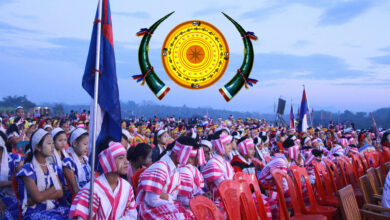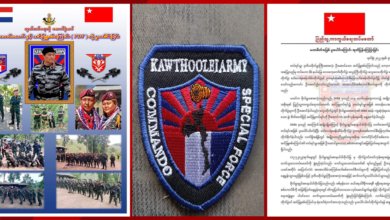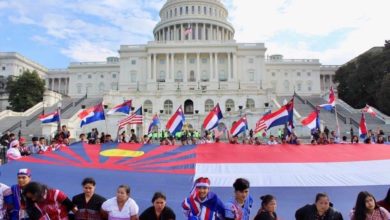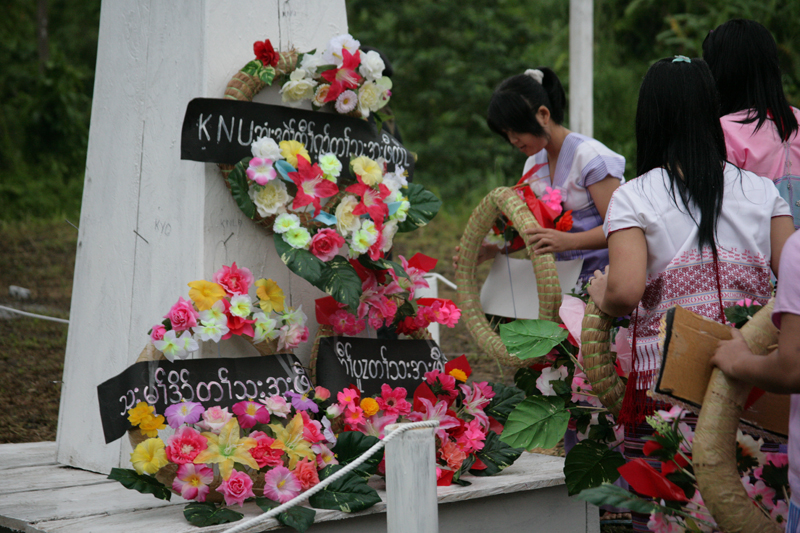Karen people are organized to take advantage of peace negotiations

The participation of the Karen people in the decision-making process at the national level is key in preventing the Karen from being subjected to on-going forms of oppression and exploitation by the military dominated Burma government.
The Karen National Union (KNU) and the Burmese government’s decision to sign the ceasefire agreement are hopeful first steps towards finding a solution to a vicious 60-year civil conflict.
However, it is important for the Karen people and civil society groups to develop and maintain an organized political front in order to keep pressure on the KNU leadership and the Burmese regime to work in the interest of all people not just a few elites, and to guarantee lasting and meaningful peace via economic and political reform. Failure to do so will have a negative impact on the people of Karen State.
It is vital for Karen youth to prepare and develop a plan for ‘ceasefire education and awareness raising’ and for them to then pass it on to the grassroots community. Thus enabling everyday people into a political process of reform and peace building.
There are three important issues that we Karen people need to be aware of: 1. Need to learn from the experiences of others – the failures or successes of political dialogue from other countries in a similar position. The Karen people need to study this in a very detailed way so that we can learn the lesson. 2. The follow up impact of the political, social and economy changes following the agreed ceasefire. 3. A follow up critical analysis of the failed political dialogue between government and opposition armed groups.
The Karen people and in particular, Karen youth need to prepare for a campaign to take to the international community about the ‘peace talks’ between the Burmese government and the Karen National Union. When the Burmese government realize that they are being watched by the international community they will handle the peace talk process in a more careful way. In this case we need to prepare more detailed and less confusing information for the international media groups before and after ceasefire negotiations.
Human resources
The Karen National Union may not have enough human resources to implement this activity plan. To be pro-active and effective we need to develop a concrete and critical plan in a very detailed way.
The majority of the Karen are not involved with political problems at a national level – they are mainly interested at their village level. If the Karen people are to attain a genuine peace, this has to change.
Strategic plan of the Burmese government
Our experiences have taught us a variety of lessons about the tactics used in the past by the Burma government.
A common strategy used in the past by Burma’s military regime to mute political dissent and weaken political resolve of the opposition groups was to offer economic incentives to a few ethnic elites.
This strategy lead to fighting between the competing elites in expanding their business interest, creating economy power for themselves and ignoring the political movement advocating for change and a just and fair political reform. Questions that need answers are – what is the economic plan of the Karen National Union for after the ceasefire? Have the KNU negotiated for a say in the national economy system or have they left the planning of it in the hands of the Burma government. If the people have to struggle economically after a ceasefire the Karen people will slowly and slowly lose their trust in the Karen National Union.
Karen political organisations need to develop a political and economic plan at the national level in a critical and concrete way. Without a well-prepared and proactive plan the Karen people will continue to suffer economic exploitation in Burma. The majority of Karen people now earn their living from agriculture.
What Karen people want from the current ceasefire talks is not unreasonable. Both parties must have equal rights when they are on the process of peace talking. The ceasefire program must be the first step for further dialogue to lead in the direction to talk about self-determination. During the ceasefire period the Karen National Union must have the rights to control their troops in Karen State area without the involvement of the Burmese military. During the ceasefire period the Karen National Union and the Karen people need to work together to develop a political and economic plan at the National level.
The Karen people need to provide education in schools and education to outside communities to educate their people. They also need to gather the vision of the people and prepare to protect themselves from economy oppression and exploitation. They need to build ethnic solidarity at a village and national level. Karen people need to be educated about the national and regional economy and how economic policies affect their lives. To educate people about the federal political system and ethnic self-determination and to research and assess sustainable development programs.
By examining the ruling system of the military dictatorship, we have learnt that they have ruled by dividing people, communities, by religion, politics and dividing the classes of people through the economic system. We need to find out the root causes to find a clear direction for peace building. The Karen people are separating in different areas, by different faiths, beliefs and religion, but their national history and culture are common factors to all Karen. We need to deeply look at this point as strength and an opportunity for national solidarity building.
We need to capitalize on these factors and rebuild the vision and ideology of the people through their culture and history, we need to rebuild a common vision for the Karen people to maintain the struggle for freedom, unity, justice and self determination and we need to set realistic goals that we can meet.
The key groups that are able to carry out the activities among the Karen people are: Karen youth and women groups that have knowledge and skill on how to organise their communities for leadership, political, social and human rights training. These groups are now working inside the Karen State, but their activities depend on security and according to their day-to-day plans – it is very important to reorganize all of their activities and to develop them to be taken to a national level.
At this time in our history Karen people and their organisations need a concrete plan with a well-coordinated groups so we can work to educate our people and to create awareness raising programs about the Karen future in our communities.




